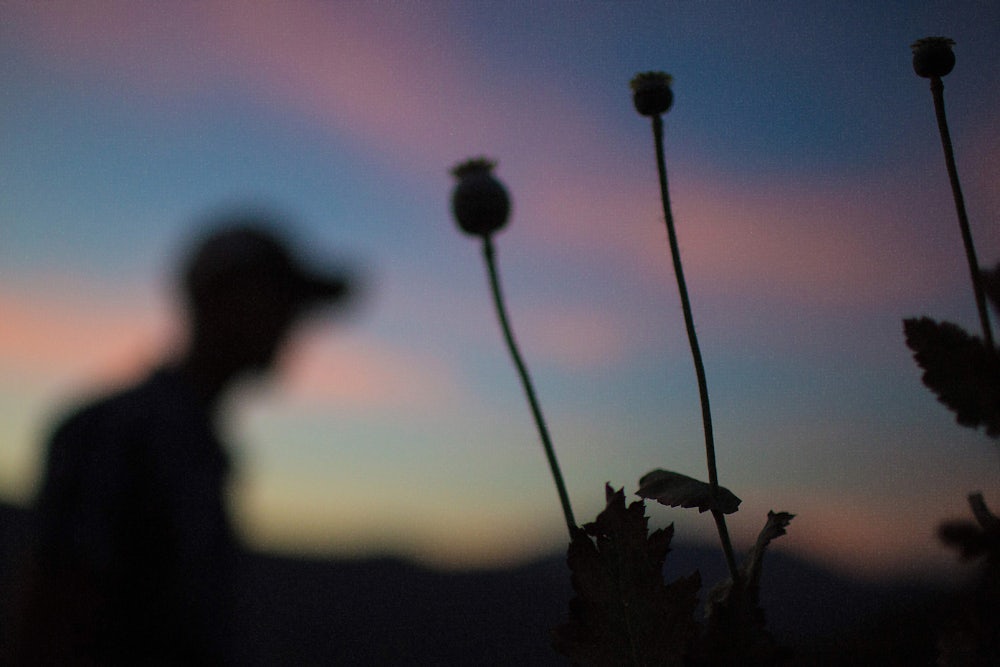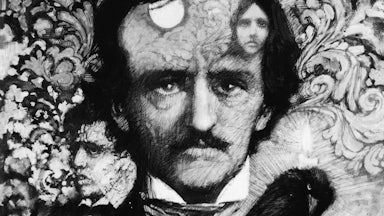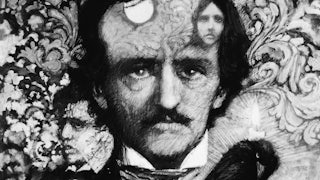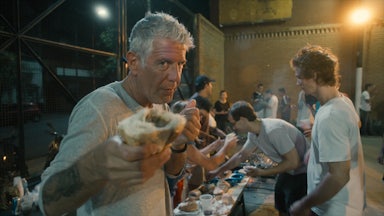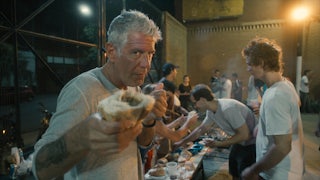On New Year’s Day in 1889, a religious leader of the Northern Paiute Indigenous tribe had a dream during a solar eclipse. He was whisked to another world where, according to an 1896 account by the ethnographer James Mooney, “he saw God, with all the people who had died long ago engaged in their old time sports and occupations, all happy and forever young.” He saw the Paiute dead resurrected. The white, European invaders of the Americas were gone, and the buffalo were returning. And he was shown a dance that would usher in this promised land—the Ghost Dance.
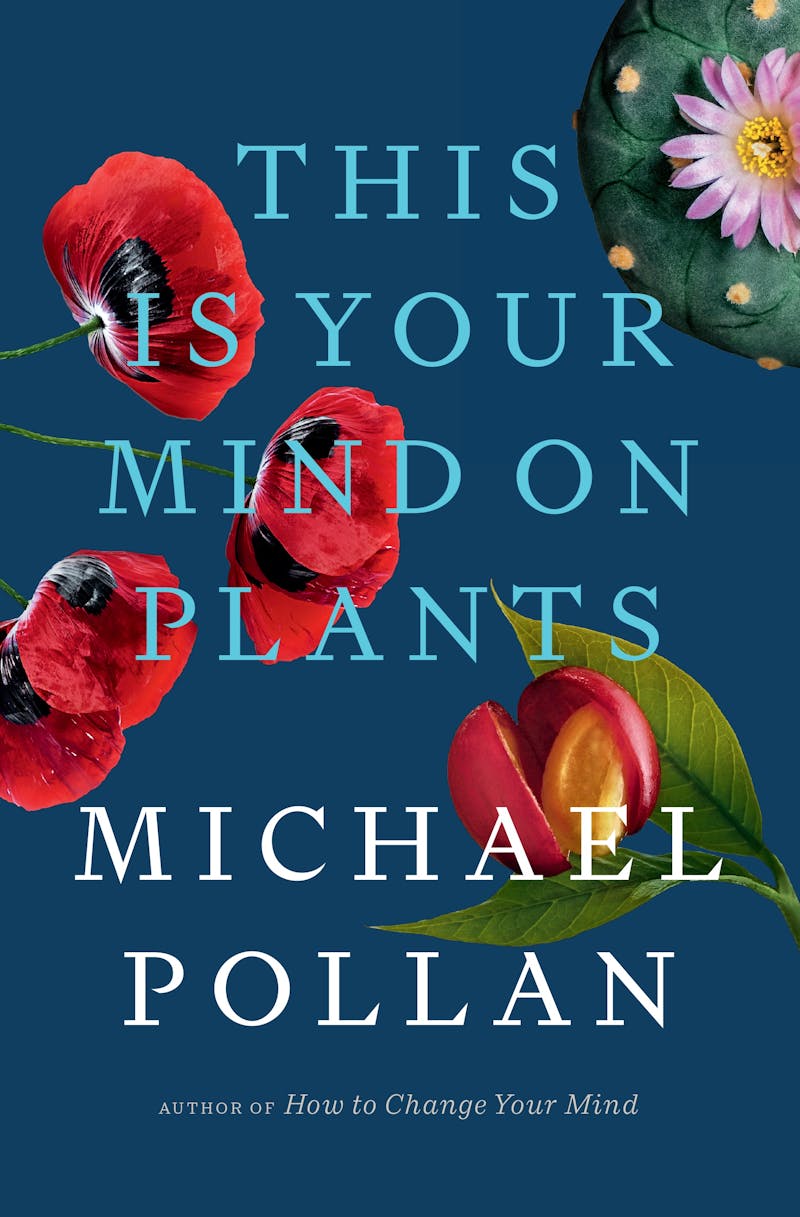
The Ghost Dance ritual involved lavish costumes and days of revels, and quickly snowballed in popularity, spreading to neighboring tribes. As Michael Pollan describes it in his new book, This Is Your Mind on Plants, the dance “terrified the authorities,” who thought it looked like the “prelude to an insurrection.” The 1890 Wounded Knee Massacre, in which nearly 300 Indigenous people were murdered by the U.S. Army, effectively put an end to the Ghost Dance. Its decline, as Pollan notes, saw the readoption of more private ceremonies in the privacy of tepees, away from the gaze of the easily spooked white invaders. These ceremonies involved a small, spineless cactus called peyote, which contained a range of phenethylamine alkaloids—most notably mescaline, a high-power hallucinogen. “What an irony!” Pollan writes, “that the more pragmatic and acceptable of the two rituals was the one involving a psychedelic.”
This story comes late in Pollan’s newest volume of immersive reportage. But it serves as a useful frame for both the book and the various ironies and hypocrisies hanging over psychoactive drugs. In recent years, psychedelics have seen something of a renaissance. But this revival, conducted under the auspices of trained neuroscientists staffing some of the world’s most reputable universities, has an almost exclusively medicalized focus. In his 2018 bestseller How to Change Your Mind, Pollan experimented with the drugs himself and reported on their emerging future in Westernized medicine as powerful compounds in the treatment of anxiety and depression. Taking a high (or “heroic”) dose of magic mushrooms to grapple with latent emotional trauma is increasingly acceptable. Taking precisely the same amount of an identical substance for pleasure has been seen as less justifiable.
In his new book, Pollan looks beyond this medicalized focus to explore the ways in which humans use plants “to stimulate or calm, to fiddle with or completely alter, the qualities of our mental experience.” Some of these fiddlings seem instrumental: Coffee braces us for the workaday grind, while opiates render surgery tolerable. Others are just pleasantly trifling, like the idle contemplation of the folds of one’s pant legs, undertaken under the sway of a psychedelic. Pollan maintains that we need to recast drugs, and drug use, in gentler terms. In a recent op-ed for The New York Times, he concluded that a future beyond the war on drugs—which he, rather optimistically, terms “the drug peace”—depends less on matters of law and neurochemistry and more on culture.
And this speaks to Pollan’s emerging role in the drug war not as an activist or agitator but a kind of culture warrior. This new book unfolds across a familiar front in this war: the argument that drugs are natural.
Let’s start with the title. This Is Your Mind on Plants plays off that shopworn slogan of late-1980s PSAs: the one with two cracked eggs bubbling in a pan. The book is composed of three lengthy essays, each dedicated to a different mind-altering plant. Pollan terms these “the downer (opium); the upper (caffeine); and what I think of as the outer (mescaline).” The aim is to chronicle his personal experiences of this broad range of compounds, which have varying histories and legal statuses and which are all, crucially, plant-derived. The plants Pollan explores all contain drugs. But they are “natural” drugs, in that they are derived from plants. With a simple word substitution, Pollan invites the reader to reconceive of drugs.
In the “Caffeine” section, Pollan mulls just how coffee and tea became so burdened with cultural meaning. Americans drink coffee while the English drink tea. Coffee connotes “tension,” and tea “relaxation.” Drinking coffee is coded as, somehow, masculine, whereas tea-drinking is deemed more feminine. “We humans apparently have a deep desire to complicate things,” Pollan writes, “to embroider the most basic biological response with the rich colors and textures of culture.” Pollan’s choice of words offers a similar embroidery. I spent the bulk of the last year researching the history of cannabis legalization in Canada. And among activists who championed blanket legalization, there’s a common refrain: “It’s just a plant.” The logic is that it is ludicrous to restrict access to a plant, precisely because it’s a plant. You wouldn’t outlaw possession of a crocus bush, or require government ID to procure some sunflower seeds. Plants are natural. Plants are normal.
This line has been productively harnessed by advocacy groups, most notably Decriminalize Nature, which has successfully spearheaded efforts to relax laws around the possession and use of psychedelics in many jurisdictions. As Pollan writes in the “Mescaline” essay, the group “single-handedly reframed the politics of drug-policy reform, beginning with the word ‘drug,’ which it scrupulously refrains from using, along with ‘psychedelic,’ another baggage-laden term. No, these were ‘plant medicines’ or ‘entheogens’—a term for psychedelics meant to underscore their spiritual use.” (Pollan encounters Decriminalize Nature as it sparks off a conflict with the Native American Church. Whereas Decrim believed all adults should enjoy free and unrestrained access to peyote cacti, the Church maintained that widespread decriminalization would only strain availability of the precious crop, compromising the very spiritual uses such entheogens were meant to catalyze in the first place.)
The difference between Pollan and a group like Decrim (beyond the latter’s explicitly political agenda) is that Pollan calls attention to his own rhetorical reframings. The book opens with a consideration of the fuzzy boundaries between food and drugs, and between legal substances and illicit drugs. These distinctions have little to do with a plant’s inherent properties and much more to do with how those properties can potentially reveal themselves within (or against) the dominant culture. The drugs deemed “illicit” are, typically, those “with the power to change consciousness in ways that run counter to the smooth operation of society.” The reverse is also true: We are encouraged to consume plants, and enter whole altered states of consciousness, when they serve those same operations. In his “Caffeine” chapter, Pollan traces how the global percolations of coffee culture “helped bend humanity to the wheel of the Machine and the requirements of a new economic and mental order.”
Drawing from his lifelong immersion in the garden, Pollan sees his investigations into drugs (or “psychoactive plant chemicals”) as part of a mission to, as he wrote way back in 1991’s Second Nature: A Gardener’s Education, “meet nature halfway.” As he writes, “One of the innumerable threads connecting us to the natural world is the one that links plant chemicals to human consciousness.” In This Is Your Mind’s opium section (adapted from a 1997 Harper’s piece), the author goes from tracing the legal woes surrounding opium poppies to launching a metaphysical inquiry into the precise point at which a “plant” becomes a “drug,” and the gardener becomes a criminal. Pollan does not present as a clandestine chemist, cooking up designer drugs in a bunker. He’s a gardener, whose tillage happens to include some plants and fungi with mind-altering properties. Such an image is, of course, yet another one of those cultural negotiations.
Pollan is a mindful and enthusiastic psychonaut. He is also a gifted writer, who synthesizes unruly social histories and wreathes them around his own drug-taking experiences. And he articulates these experiences with great insight and eloquence, and without the usual clack that typifies so-called “trip reports.” But Michael Pollan has never explicitly cast himself in his writing as a pro-legalization advocate or anything like it. Late in How to Change Your Mind, he expresses his hope that the psychedelic experience will be more widely embraced, even outside of strictly “therapeutic” contexts. But then he pulls his punch. “Does that mean I think these drugs should simply be legalized? Not quite.” Instead, he maintains that one-on-one sessions with an experienced guide (whether a lab-coated clinician or an underground urban shaman) may be the ideal.
In his “Opium” essay, Pollan defers to the language of civil libertarianism. His quest to cultivate opium poppies is consistent with the all-American “refusal to accept that what happens in our gardens, not to mention in our houses, our bodies, and our minds, is anyone’s business but our own.” Such arguments are, again, highly effective. But one wonders how they can be productively extended to account for those drug users whose habits are disproportionately criminalized.
Earlier this year, the 54-year-old Columbia professor Carl Hart generated some controversy with his new book, Drug Use for Grown-Ups. In it, Hart freely admitted to using heroin recreationally. He argued that doing so should be safeguarded by the rights of “life, liberty and the pursuit of happiness” vouchsafed by the Declaration of Independence.
Neither Hart nor Pollan is agitating for some freewheeling Thunderdome, where the very real ravages of addiction and drug dependence are downplayed. What they’re arguing is that America already is a kind of narco-state. The ongoing, taxpayer-subsidized war on drugs has only muddied the thinking around psychoactive substances, while drug dependence, death, and mass incarceration have increased. “The drug war’s simplistic account of what drugs do and are,” writes Pollan, “has for too long prevented us from thinking clearly about the meaning and potential use of these very different substances.”
Pollan regards the desire to “vary, intensify, and sometimes transcend” workaday consciousness as an inherent feature of human culture. It is, in its way, entirely natural. Hart is more full-throated, calling for the legalization and regulation of all drugs, even those most vilified. Hart is unembarrassed about his status as a “user,” whereas Pollan’s own adventures with all manner of illicit mind-enhancers are undertaken in the name of self-exploration (he assures the reader that his own mellow encounter with opium was “a one-time experiment”). There’s a buttoned-down, almost conservative, quality to these arguments. Drug experiences are no longer socially disruptive but remain relegated to the cozy living room of one’s personal homestead, an extension of personal property rights. They become, in other words, rituals of accommodation.
Pollan recognizes that the war on drugs is “in truth a war on some drugs, their enemy status the result of historical accident, cultural prejudice, and institutional imperative.” Yet there’s still the nagging sense that he’s benefiting from these hypocrisies: that he enjoys a freedom of self-tinkering and contemplation that is not universally applied. Culture shifts that encourage the curious to engage in recreational consciousness-fiddling are all well and good. They’re great. But they’re just another privilege, if unaccompanied by harm-reduction programs, reparations, a robust social safety net, and other progressive political measures that might define the drug war’s antebellum period. If the peace-and-love promises of the 1960s “drug culture” failed, it was because the headier ideals of equality were never meaningfully manifested.
Pollan may be following from the lessons of psychedelia, in which obvious truths can be plainly revealed to the user (or, here, the reader) in ways that are revelatory but not prescriptive or didactic. Still, at the risk of rehashing psychedelic ’60s platitudes of smiling on your brother and finding our way back to the garden, I can’t help but feel that one must orient an opened mind toward action. We may only ever meet nature halfway. But surely we should strive to embrace our fellow drug users on an equal footing.
